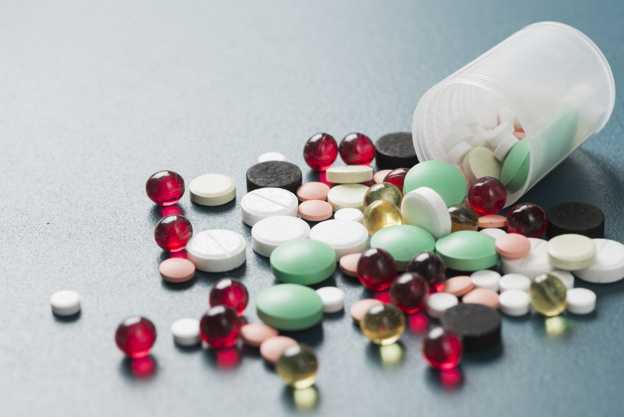Every woman faces vaginal dryness at some point in their life. It is a condition that occurs when the moisture level drops down from the vaginal lining. The lining of the vagina is always lubricated with a thin layer of clear fluid. This fluid is essential to keep the vagina healthy, thick, and elastic. Vaginal dryness can occur at any stage of life and cause great discomfort and irritation. Lack of vaginal moisture can also impact your sex life heavily.
Vaginal dryness is a condition that occurs due to a drop in estrogen levels. Estrogen a female hormone is essential and plays an important role in maintaining the moisture level in the vaginal lining.
Vaginal dryness is most often observed in women after menopause when the female hormones like estrogen start to decline. Many women experience vaginal dryness as a symptom of the aging factors and try to ignore it, without seeking any treatment. Every woman should consult their doctor if they experience any discomfort or pain during sexual penetration. Luckily, there are a lot of treatment options available for vaginal dryness.
What causes dryness of the Vagina?
Vaginal dryness is one of the most common symptoms of menopause. However, many other factors can contribute to vaginal dryness in women at any point in age. Some of the causes are mentioned below;
- Vaginal dryness is a precursor of low estrogen levels in the body and during childbirth and breastfeeding conditions the level of estrogen declines leading to vaginal dryness.
- Women suffering from cancer and undergoing chemotherapy sessions and radiation therapy
- Surgical removal of the ovaries due to tumor or disease.
- Consuming anti-estrogen medications which are prescribed if a woman is suffering from uterine fibroids or endometriosis.
- An autoimmune disorder like Sjogren’ssyndrome which causes swelling of the tear as well as the salivary glands also promotes vaginal dryness by infecting the tissue lining of the vagina.
- Medicines that are taken during cold, are helpful in drying up the eyes and the nose. However, their adverse effects can also dry up the linings of the vagina.
- Antidepressants consumed by women can cause vaginal dryness in women and lead to side effects from a sexual point of view. The symptoms may cause a drastic drop in libido, and reaching orgasms.
- Smoking is also known to contribute to vaginal dryness, as it has been found that women who aggressively smoke tend to achieve menopause at earlier ages.
Symptoms and Diagnosis of vaginal dryness:
Dryness of the vagina can cause symptoms that may include burning, intercourse pain, itching, dryness, irritation, and discomfort in the vaginal area. Any of these symptoms faced by women for a prolonged period of time should not be ignored and one should immediately consult their doctor or gynecologist.
Your doctor may ask you about your past health and analyze your symptoms, their duration. After knowing your symptoms the gynecologist will conduct an examination around the pelvic region and check for any redness or thinning of the tissue or lining of the vagina. This examination will also eliminate other possible causes of vaginal dryness like urinary tract infection, urinary incontinence. The doctor may also ask you to undergo a Pap test for a better diagnosis.
Medical treatment:
Vaginal dryness is a result of the decline in a female hormone called estrogen. Estrogen therapy can help get rid of such problems by relieving vaginal symptoms. Estrogen therapy is best suited because through the topical application the drug is absorbed at a lower rate reducing the risk that can happen when estrogen is consumed in the form of a pill. There are quite forms available as topical estrogen therapy which includes.
Topical estrogen cream: there are so many formulations available, which contain estrogen in cream and can be applied directly around the vagina region. Scientific studies have shown that estrogen cream is effective when curing the dryness issue. These creams have proven to reduce the symptoms of dryness, burning, and itching of the vaginal area
Vaginal ring. This is another formulation that contains a flexible ring where it can be easily inserted into the vagina. This ring is known to release the estrogen in very low amounts over a period of time and help relieve the symptoms of vaginal dryness.
Vaginal tablet: These dosage forms are designed to be inserted directly into the vagina with the help of an applicator. The dosage form contains estrogen which is slowly released in the presence of vaginal fluid.
However, every woman should consult their doctor regarding estrogen therapy, especially those who have previously experienced a case of breast cancer. Estrogen therapy is to be taken with caution in pregnant women and breastfeeding mothers.
Off-The-Shelf Treatments:
Off-The-Shelftreatments include the use of lubricants. The lubricants are available in two forms which include water-based lubricant or oil-based lubricant. Doctors recommend the use of water-based lubricants over lubricants that have a high dosage of oil in them. Because oil-based lubricants can cause irritation and breakage of condoms during intercourse. Lubricants are available over the counter and help in treating vaginal dryness by moisturizing the inner lining of the vagina.
Home remedies:
- One can prevent vaginal dryness from happening by adopting certain lifestyle changes and including good foods into their diet which includes the following
- Smoking has been identified as a risk factor for vaginal dryness. Smoking has anti-estrogenic effects that can cause a decline in the levels of estrogen. Estrogen is known to play an important role in lubricating the vagina.
- Doing regular exercise boosts up the blood circulation in the body and helps maintain normal hormonal balance.
- Consuming at least 2-3 liters of water daily and keeping you hydrated, to retain the moisture levels in the body.
- Regular sex- Practicing regular sex can help increase the blood flow to the vaginal tissues, and stimulate moisture production during arousal.
Using skin-friendly compounds:
- The tissue present in the vagina is very delicate and contains good bacteria’s that help clean the bad things naturally and maintains the pH of the vaginal fluid.
- Using products like harsh soaps, fragrances, and other dyes can irritate the vaginal tissue promoting vaginal dryness. So, try to inhibiting the use of these products to prevent vaginal dryness.
- Also, using clingy synthetic materials as your undergarment can promote vaginal dryness by restricting the movement of air. Try using cotton and skin-friendly undergarments that soothe your vagina by promoting airflow.
If you are also facing problems with vaginal dryness, try to keep it lubricated all the time by following all the mentioned parameters above. A lubricated vagina can make you feel good, fresh, young and can also protect you from harmful bacteria.
Read Also:






















